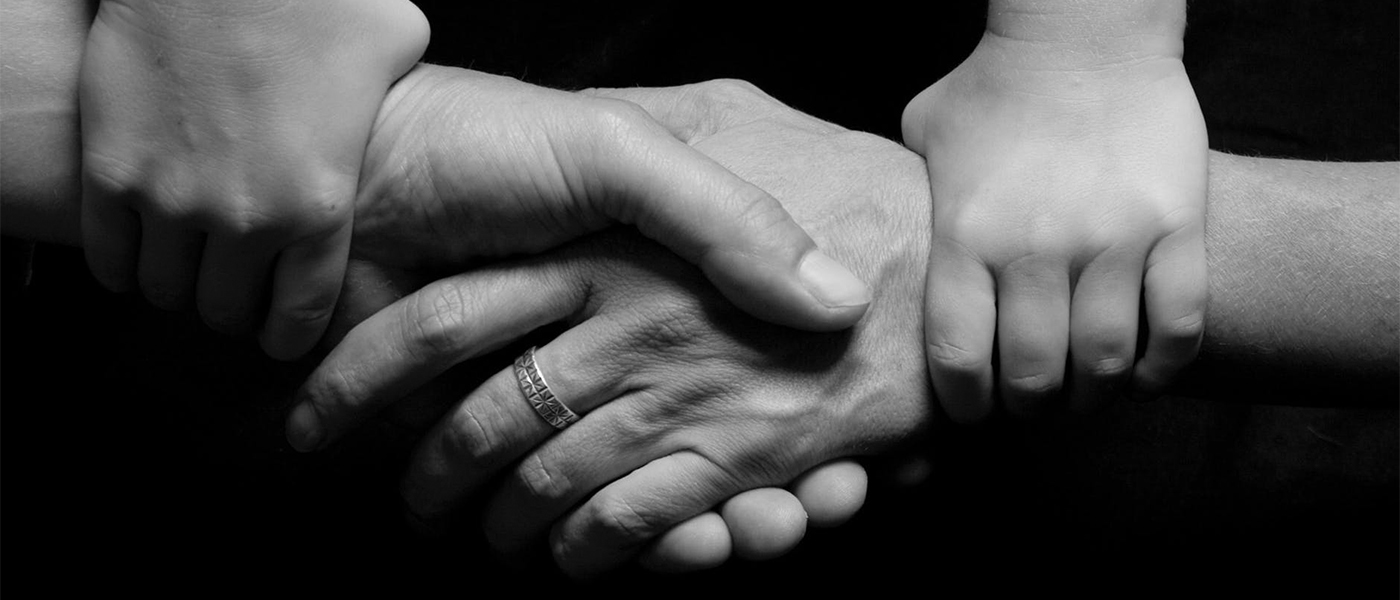

What are the Husband's Rights over His Wife?
When you hear this question the first thing that comes to your mind is probably the following: “Do husbands have rights too?” and "What are husband's rights in Islam?" In today’s modern societies whenever the issue of rights is discussed, particular groups are considered; mainly women and children.
However, it seems that men’s or husband's rights have been neglected or never talked about since no one thought it was necessary!
Here we want to pay our attention to MEN and specifically those men who are involved in family life, say husbands!
Husband’s Status in Family
Since in Islam, the family is seen as an essential entity of the society, the wife-husband relations, their responsibilities and rights over one another is to be seen in the light of their status in the family.
When a man is called ‘husband,’ it means so much to him. He has to provide, has to fulfill his wife’s needs emotionally and economically. There are so many responsibilities that a man as a husband has towards his wife, and when it comes to Islamic culture and teachings, it is even more demanding.
The only provider in Islam is considered to be the husband, and wife has no responsibility whatsoever to provide for the family, unless she works and earns money only for her own pleasure (She may voluntarily, however, support the family financially. As it is the case in many Muslim families nowadays).
The Prophet (PBUH&HP) said: 'Man is the guardian of his family and every guardian has responsibilities towards those under his guardianship' [1].
Also, it is mentioned in the Quran that the husband is the ‘manager’:
‘Men are the managers of women, because of the advantage Allah has granted some of them over others, and by virtue of their spending out of their wealth...’ (4:34)
A modern reader of this verse may wonder why men should be the managers. One of the reasons mentioned in the above verse is due to his financial role in the family: ‘and by virtue of their spending out of their wealth...’
However, one may argue that, in today’s societies, this is not always the case. Today both men and women work, both earn money, both are educated, and they both have the same virtues. Then, what feature(s) of men has made them capable of being in charge of the family?
1. Husband’s Rights: Respect and Obedience
‘Righteous women are obedient..’ (4:34)
What does it mean to be obedient? Can it be applied to today’s societies in which men and women are considered the same?
Modern thinkers have mainly focused on the similarities between men and women to defend women’s rights. They have strived to show that women have the same power as men to build the history [2]. At the end of the day, however, they are two ‘unique’ creatures of God, each of them possessing their beauty and strengths that fit well with his or her purpose of being. This is well addressed in the following verse:
‘And of His signs is that He created for you mates from your own selves...’ (30:21)
The word ‘mate’ in the above verse refers to the fact that man and woman are incomplete on their own, and they need each other [3].
In other words, men are created to be fathers, the same way that women are created to be mothers! Is it not enough to understand their different duties, rights, and responsibilities?
Islam advocates the priority of neither gender; rather it allows every person to fulfill their potentials, without any discrimination.
Alexis Carrel, the well-known French physiologist, and biologist admits the fact that men and women have been made differently according to the law of creation and he also confirms that these dissimilarities make their duties and rights dissimilar [2].
When Islam introduces husband as the manager, it means he is fully responsible for all family affairs. Accordingly, one of his rights is to be obeyed by family members including his wife and children.
What is primarily important here is that there should be a balance between rights and duties for each member of the family. When a family is seen as a big picture in which every member has their own role, different rights and duties of husband, wife and children can be easily explained.
2. Husband's Rights: Sexual Availability
Parallel to his duties and responsibilities, a husband also has some rights over his wife. Sexual satisfaction is one of them. A wife has to sexually submit herself to her husband unless during the wife’s state of menstruation:
‘They ask you concerning [intercourse during] menses. Say, ‘It is hurtful.’ So keep away from wives during the menses, and do not approach them till they are clean’ (2:222)
This is indeed one of the advantages that Islam gives to women to protect them.
One might argue why sexual availability is considered as a duty for the wife and one of the husband's rights? An examination of the philosophy of marriage in Islam will be helpful to find the answer [4].
In Islam wife is considered as husband’s mate towards whom husband take comfort as you can see in the following Quranic verse:
‘And of His signs is that He created for you mates from your own selves that you may take comfort in them, and He ordained affection and mercy between you...’ (30:21)
From the Islamic point of view, if a man is sexually and emotionally satisfied at home he will be protected against corruption outside. Same goes for women of course; hence we have many instructions for men on how to care for their wives and pay attention to their sexual needs.
Last word...
We can never talk solely about husband's rights or wife’s rights. They are members of one social unit called ‘family’; a unit that is of high value and importance in Islamic teachings. Husband, like the wife, has his own rights and duties.
As for his duties, he is considered as the only provider for the family, and as the guardian, he has to take care of his wife and children. As for husband's rights, he has to be sexually and emotionally satisfied by his wife. Also, as the manager of the family, the husband is to be obeyed.
Wife and children must recognize the role of man in the family for the family to stay on the right track. However, man is to provide whatever means possible to fulfill his wife's and children’s needs emotionally and economically.
References:
- Mustadrak, vol 2, p 550.
- Mutahhari Murtadha, The Rights of Women in Islam
- Almizan, Tafir, Vol 16. Sura Rum, verse 21
- The Importance of Marriage in Islam’,
Share This Article

Children's Rights in Islam From Conception to Birth
The respectability of human rights begins with the way that society treats its children. Children's rights in Islam are not separated from human rights because children are the future generation. Our children are trust and assets for us from God. Furthermore, it is mentioned in the Eighteenth Chapter of the Quran (Surah Al-Kahf), verse 46 that children are an adornment of the worldly life.
The religion of Islam pays special attention to the rights of children and to the worthy manner to raise them. As the Prophet (PBUH) of Islam has asserted: "There are as many rights of children necessary upon parents as there are rights of parents necessary upon children."
It is worth mentioning that in this article, by children's rights in Islam we mean their rights over their parents. Admittedly, rights and duties are inter-related between parents and children, and children's rights in Islam are the duty of parents.
Accordingly, to fulfill children's rights in Islam, some parental obligations through specific guidelines are specified. Following guidelines are parental duties towards children (as the Child's Rights) in some specific ages:
Children's Rights in Islam:
1. Upbringing and Hygiene of Fetus (Before conception and during pregnancy)
Children's rights in Islam begin before conception and will continue during pregnancy. In this period, thoughts, actions, and nutrition of the parents (especially the mother) have an impact on the spirit, essence, character, and health of the unborn child; the child is like an organ of the mother and obtains all the necessary factors of development from her.
Emotional and respectful relations between parents and also mental relaxation of the mother are significant in this stage. Peace of mind has been affected by feeling assured in life.
Moreover, a healthy relationship between parents and a strong physical attraction is beneficial to conceive a pure and good child, while fear and worry will have negative consequences on the child.
One of the effective ways, to attain peace and confidence, is the remembrance of God [i].
Therefore, the mother should try her best to keep herself occupied with religious acts such as reading Quran, praying, and staying away from fruitless activities that will not benefit her or the child growing inside her.
On the other hand, the food individual eats not only has a high impact on the physical aspect of a person but on the nonphysical part as well. Some foods have also been recommended explicitly by Islamic teachings for a healthy, beautiful, and virtuous child. For instance, it is narrated from Prophet Muhammad (PBUH&HP): “Eating pomegranate is a cause of increased sperm production for men and makes the child beautiful and healthy as well” [1].
Another Hadith from Imam Sadeq (AS) narrates that “Anyone who eats quince on an empty stomach, the source of his seed production (sperm) becomes pure and healthy, and his child will be beautiful and decent” [2].
It is important to note that many acts are not recommended during conception:
Prophet Muhammad (PBUH&HP) said: “Speaking during the actual act, leads to confusion in the child” [3]. And: “Making love when the man is muhtalim (i.e., become in the state of Janabat [ii] during his sleep) and before doing ablution (Wudu or Ghusl), as this results in the child becoming insane” [4].
The above narrations and recommendations are just some of these factors that may affect the conceived child. It is notable that many factors contribute to the physical and psychological make-up of the child, such as inherited characteristics, geographical terms, and social status, etc. Giving charity, reciting the Quran, and praying are strictly effective to avert possible negative consequences.
2.The recitation of The Call to Prayer (Adhan and Iqama) in the ear of a newborn (At birth)
In the earliest time possible, a newborn child should hear the remembrance (Zikr) of Allah upon his/her arrival into this world. Adhan should be said in the right ear, and Iqama should be said in the left one by a competent person such as the father [iii] [5].
Notes:
[i] “Those who have faith and whose hearts find rest in the remembrance of Allah.’ Behold! The hearts find rest in Allah’s remembrance!” (13:28)
[ii] "Janabat" is a ritual impurity caused by the discharge of semen or by sexual intercourse, and the person on whom ghusl janabat becomes wajib is known as "junub" [6].
[iii] Prophet Muhammad (PBUH&HP) said: “Whenever you had a newborn boy or girl, say Adhan to his or her right ear and also say Iqamah in the left ear. So the Satan will not harm the baby".
References:
- Wasāil ash-Shī~a, vol. 25, p. 104, no. 31499
- Biĥār al-Anwār, vol. 81, p.101.
- Al-Khisal, p.520.
- lal al-sharayi, p.514.
- Tuhaf al-'uqul. p. 13.
- Sayyid Muhammad Rizvi, Marriage and Morals in Islam, p. 64.
Read More

What Does Islam Say about Maintaining Family Ties?: Part 2
Silatur-Rahim or preserving family ties is not limited to visiting relatives, but also includes trying to satisfy their needs and strengthening emotional bonds with them. This depends of course on the situation of each member of the family; one might require money while the other has emotional needs [1].
Some of the examples of Silatur-Rahim are: visiting relatives; greeting and honoring them; inviting them even to a cup of coffee or tea; giving them good advice in case of a problem; not harming them by talking behind their back, insulting or accusing them, or by interfering in their personal affairs; being kind and caring about them; visiting them when they are sick; giving them gifts in different occasions; fulfilling their needs before others do, and participating in their funerals [1]. Imam Sadiq has(AS) said: “… The best family tie is the one in which the relatives are not harmed” [2].
Maintaining family ties: Benefits
Upholding kinship with relatives has various advantages in this world and the hereafter:
Having the social and emotional support of family: In Surah Hud, where people threaten Prophet Shu’ayb (PBUH), they tell him if his tribe had not supported him, they would have stoned him (11:91).
Imam Ali (AS) said: “Upholding family ties brings affection and humiliates enemies” [3].
Having an immediate reward: Imam Baqir (AS) said: “The reward of Silatur Rahim is given more quickly than any good deed” [4].
Increase in wealth: Prophet Muhammad (PBUH&HP) said: “Whoever keeps family kinship, God will love him and increase his wealth” [5].
Having some of the sins vanished: Imam Ali (AS) said: “Eliminate your sins by a voluntary charity and keeping family ties” [6].
Having an easy death and a long life: When Prophet Moses (PBUH) asked God about the reward of upholding family ties, the answer was: “(Whoever does so,) I will postpone his death, I will make his death easy, and the heaven angles will call him to enter heaven from every door he wishes” [7].
Prophet Muhammad (PBUH) said: “Whoever keeps family kinship …God will make his life longer and let him enter heaven” [6]. Imam Baqir (AS) said: “Keeping family ties purifies one’s deeds, increases his wealth, keeps him safe from disasters, makes the accounting of his deeds easy and postpones his death” [8]. Imam Sadiq (AS) said; “Silatur Rahim makes lives longer …, even if doers are not righteous” [9].
Severing Family Ties: Consequences
One cannot sever family kinship deliberately since upholding family bonds is a duty ordered by God, hence, the disobedience from this order is of the major sins (al-Kaba’ir) [10].
In Islam, the warnings against severing and breaking off family bonds are as many as the exhortations to uphold family ties. That is due to the disastrous consequences that neglecting and severing family ties can have on one’s life; these include:
Having a shorter life than it would be: Imam Sadiq (AS) said: “a man might have 33 years of his life left, but God will shorten it to 3 years if he breaks family ties” [11]. In another narration from Imam (AS), negligence of family bonds is known as “a sin that perishes a man quickly” [12].
quickly receiving a punishment, Imam Baqir (AS) said: “four sins cause quick punishments … (one is) breaking family ties” [13].
Being cursed by God [i] and deprived of his mercy: “But as for those who ... sever what Allah has commanded to be joined, … it is such on whom the curse will lie, and for them will be the ills of the [ultimate] abode” (13:25).
Being doomed to the hell: Prophet Muhammad (PBUH&HP) has said: “the sweet smell of heaven will be sensed from a thousand year of distance but those who have been insolent to the parents and those who have broken family ties will be deprived of it” [14].
One’s prayers (Dua) will not be accepted anymore after severing family ties [15].
One’s good deeds will be rejected: Imam Rida (AS) said: “whoever sever family ties, he does not fear from God (does not have Taqwa), his good deeds are therefore refused and will face grave punishments in this world and the hereafter” [16].
Severing Family Kinship: Causes
Cutting family ties has several reasons, but lack of modesty and greed are known as the two main ones. Imam Sadiq (AS) said that: “Some would not have respected parents’ rights and kept family ties if modesty had not existed” [17].
Prophet Muhammad (PBUH&HP) has warned about greed: “Beware of greed, for it was greed that commanded those before you to bloodshed and severing their family ties” [18].
Notes:
[i] (2:27), (13:25), (47:22-23).
References:
- A. Javadi Amoli, “Mafatih al-hayat”, p. 217.
- Shaykh al-Kulayni, “Al-Kafi”, vol. 2, p. 151.
- Imam Ali (AS), “Ghurar al-Hikam wa Durar al-Kalim”, vol. 4, p. 209, T. 5825.
- Shaykh al-Kulayni, “Al-Kafi”, vol. 2, p. 152.
- Shaykh al-Saduq, “Uyun akhbar al-Rida(AS)”, vol. 2, p. 37.
- Imam Ali (AS), “Ghurar al-Hikam wa Durar al-Kalim”, vol. 4, p. 635, T. 7258.
- Fattal Neyshaburi, “Rawdat al-wa'izin wa basirat al-mutta'izin”, vol. 2, p. 370.
- Ibn Shu’bah, “Tuhaf al-Uqul”, p. 299.
- Shaykh Tusi, “Al-Amali”, p. 481.
- R. Khomeini, “Tahrir al-Wasilah”, vol. 1, p. 274.
- Shaykh al-Kulayni, “Al-Kafi”, vol. 2, p. 153.
- Shaykh al-Saduq, “Illal Al Sharaie”, p. 584.
- Ibn Babawayh, “Al-Khisal”, p. 230.
- Shaykh al-Kulayni, “Al-Kafi”, vol. 2, p. 349.
- H. T. Nuri Ṭabarsi, “Mustadrak al-Wasail”, vol. 15, p. 185.
- A. Javadi Amoli, “Mafatih al-hayat”, p. 215.
- “Tawḥid al-Mofazzal”, p. 79.
- Ibn Babawayh, “Al-Khisal”, p. 176.
Read More

